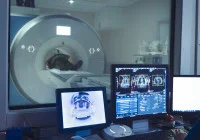Six emerging healthcare startups have been named as finalists in a high-profile pitch competition spotlighting transformative solutions to pressing challenges faced by health systems worldwide. Organised in collaboration with EIT Health, the event offers a select group of small and medium-sized enterprises the opportunity to present their innovations to an expert panel of digital health leaders. The finalists, chosen for the scalability, impact and technological strength of their solutions, will compete in two distinct categories—intelligent automation and health equity. With a focus on international expansion and real-world healthcare applications, these companies exemplify the evolving future of patient care, diagnostics and digital enablement.
Driving Transformation with Intelligent Automation
The first category—centred on intelligent automation—brings together startups that use artificial intelligence, automation and real-time data to improve the efficiency and effectiveness of healthcare delivery. These technologies are designed to reduce operational inefficiencies, improve decision-making and allow healthcare professionals to devote more time to patient care.
From Spain, Clinicgram has developed a system that combines AI with proprietary Spectral Intelligence to identify diabetic foot ulcers before they form. This early intervention not only enhances patient outcomes but also prevents costly complications. Their tool also doubles diagnostic accuracy in primary care and provides chronic wound assessments in less than 15 seconds, supporting clinicians with quick, data-driven insights.
Must Read: Start-ups Leading the Way in Life Sciences and Healthtech Innovation
Polish startup Saventic Health is tackling the often-lengthy diagnostic pathway for rare diseases. Using AI, the platform supports physicians and clinics by analysing clinical data to flag possible rare conditions earlier in the process. In doing so, it helps patients navigate the healthcare system more effectively by directing them to the right specialists and services, thereby reducing diagnostic delays and improving care outcomes.
In the United Kingdom, TCC-CASEMIX is improving surgical care by helping providers and manufacturers capture and analyse surgical data in real time. Their solution supports patient pathway management and enables proactive monitoring after the use of medical devices. It also significantly reduces post-market surveillance costs for device manufacturers by up to 80%, making compliance and continuous improvement more feasible for organisations navigating complex regulatory environments.
Together, these startups show how technology can streamline healthcare delivery, enhance safety and accuracy and free up resources for more personalised and proactive care.
Equity-Focused Innovation for Underserved Populations
In the second category, three companies are addressing critical gaps in healthcare access and equity, offering solutions designed to serve underrepresented or vulnerable populations across different life stages.
Feyenally, based in Poland, has developed a solution that enables individuals to self-examine for refractive eye conditions using only a smartphone. By eliminating the need for specialist equipment and clinical environments, Feyenally's tool can be deployed at scale to help address the eye care needs of over one billion people worldwide who currently lack adequate access.
The UK’s Zedsen is redefining breast cancer screening with a patented, non-ionising device that works alongside a cloud-based algorithm to provide advanced diagnostic capabilities in primary care settings. The innovation aims to make early breast cancer detection more accessible, reduce radiology backlogs and empower primary care providers to play a more active role in screening, particularly in underserved areas where diagnostic resources may be limited.
From France, Five Lives is focused on cognitive health for older adults. Its dual-purpose digital platform supports prevention through a mobile app designed for users aged 50 and above, while also offering cognitive remediation therapy for those diagnosed with mild cognitive impairment or Alzheimer's disease. With a user base already surpassing 160,000 individuals, Five Lives is demonstrating how digital tools can be used to promote healthy ageing and support patients with progressive neurological conditions.
These equity-focused ventures showcase the power of innovation to reach individuals who are often overlooked in traditional models of care. By placing accessibility, affordability and inclusion at the core of their solutions, these startups are helping to rebalance the healthcare system in favour of more holistic and inclusive outcomes.
Opportunities for Global Growth
All six finalists have met rigorous selection criteria, including incorporation within the European Union or eligible associated countries, proof of funding or revenue and a clear intent to scale internationally. Their inclusion in this competition reflects not only the strength of their technologies but also their business readiness and growth potential.
Finalists will gain access to a valuable network of mentors, investors, and strategic partners, increasing their exposure to international markets. The event also offers a powerful platform for startups to test their messaging, refine their business models, and connect with decision-makers capable of accelerating their adoption of health systems across Europe and beyond.
This year’s competition, part of HIMSS25 Europe, highlights startups that are reimagining healthcare through intelligent design and inclusive thinking. Whether advancing automation or addressing disparities, these six companies exemplify the potential of early-stage innovation to transform healthcare delivery and accessibility. As they prepare to share their visions on stage, each represents not just a business opportunity but a step forward in building a more effective, equitable and sustainable health system for all.
Source: HIMSS
Image Credit: iStock










